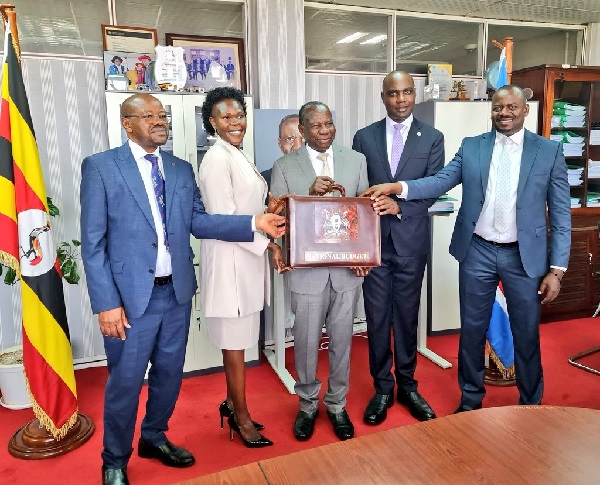




Kampala, Uganda | THE INDEPENDENT | Finance Minister Matia Kasaija will shortly read the 2024-2025 budget speech, but the focus will be on the recent arrests of several Members of Parliament over corruption allegations.
At the State of the Nation address last week, President Yoweri Museveni said he had unearthed corruption in parliament, and would take action. Museveni said MPs allegedly colluded with accounting officers, Ministry of Finance and Bank of Uganda officials to make allocations of public resources in exchange for kickbacks (bribes).
Yusuf Mutembuli MP for Bunyole East Constituency in Butaleja District, Paul Akamba MP for Busiki Constituency in Namutumba District and Cissy Namujju Dionizia Lwengo District Woman MP have been remanded to Luzira by the Anti Corruption Court in Kampala. They are charged for soliciting money from the Uganda Human Rights Commission in order to increase its budget.
The budget
Uganda’s Parliament last month approved a substantial national budget for the fiscal year 2024/2025, setting an ambitious Shs72.136 trillion financial blueprint after ratifying the Appropriations Bill 2024 on May 16.
This budget marks a notable increase of Shs14.050 trillion from the earlier projection of Shs58.34 trillion, underscoring a significant fiscal expansion aimed at propelling the nation’s growth.
The budget comprises recurrent expenditure of Shs18.9 trillion and development expenditure of Shs34.7 trillion, with the total amount including statutory expenditure standing at Shs72.136 trillion.
In terms of revenue generation, the budget anticipates Shs32.3 trillion from domestic sources, comprising both tax and non-tax revenues. Additional financial streams are projected from budget support mechanisms like grants and loans amounting to Shs1.3 trillion, alongside Shs8.9 trillion through domestic borrowing. The framework also includes Shs9.5 trillion from project support and a significant Shs19.8 trillion earmarked for domestic debt refinancing.

From the resource envelope, Shs3.1 trillion is allocated for external debt repayment, Shs9.5 trillion for project support, Shs12 trillion for domestic refinancing, Shs9 trillion for interest payments, Shs293.9 billion for appropriation in aid, Shs603 billion for Bank of Uganda recapitalisation, Shs200 billion for domestic arrears, and Shs9.1 trillion for domestic debt repayment under Bank of Uganda, take a first expenditure call.
The budget prioritizes human capital development with an allocation of Shs9.9 trillion, representing 26.3% of the total budget, channeled towards enhancing education, healthcare, and skills development.
Governance and security are also high on the agenda, receiving Shs9.1 trillion to strengthen law enforcement and national security infrastructure. Additional allocations include Shs5.1 trillion for integrated transport infrastructure and services, Shs2.3 trillion for development plan implementation, and Shs2.0 trillion for private sector development.

Significant investments were also directed towards key sectors and initiatives, including sustainable energy development (Shs1.0533 trillion), administration of justice (Shs481.4 billion), legislation, oversight, and representation (Shs978.6 billion), climate change and environment management (Shs682.6 billion), and Digital Transformation (Shs230.9 billion).
Notable allocations include funding for the Hoima and Akii-Bua stadia construction ahead of hosting the African Cup of Nations in 2027 and the initiation of the Standard Gauge Railway construction.
Shs30 billion has also been allocated to kick-start the process of establishing Busoga and Bunyoro universities. “The investments shall be directed towards peace and security, maintenance of roads and construction of a few strategic ones as well as rehabilitation of the metre gauge railway and construction of standard gauge railway,” Musasizi said.
Tweets by mofpedU
 The Independent Uganda: You get the Truth we Pay the Price
The Independent Uganda: You get the Truth we Pay the Price

 LIVE: Kasaija reads Uganda’s Shs72 trillion budget
LIVE: Kasaija reads Uganda’s Shs72 trillion budget


That’s good